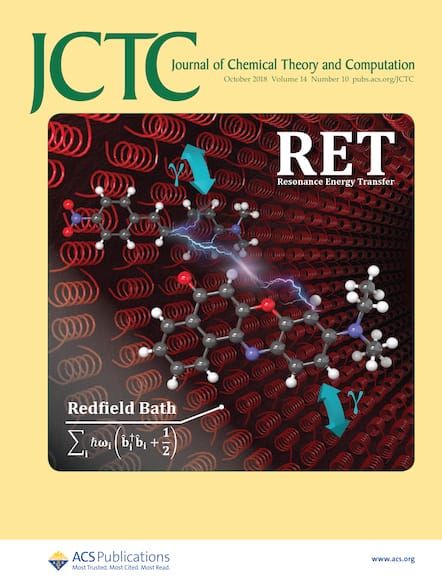Ensemble Adaptive Sampling Scheme: Identifying an Optimal Sampling Strategy via Policy Ranking.
IF 5.5
1区 化学
Q2 CHEMISTRY, PHYSICAL
引用次数: 0
Abstract
Efficient sampling in biomolecular simulations is critical for accurately capturing the complex dynamic behaviors of biological systems. Adaptive sampling techniques aim to improve efficiency by focusing computational resources on the most relevant regions of the phase space. In this work, we present a framework for identifying the optimal sampling policy through metric-driven ranking. Our approach systematically evaluates the policy ensemble and ranks the policies based on their ability to explore the conformational space effectively. Through a series of biomolecular simulation case studies, we demonstrate that the choice of a different adaptive sampling policy at each round significantly outperforms single policy sampling, leading to faster convergence and improved sampling performance. This approach takes an ensemble of adaptive sampling policies and identifies the optimal policy for the next round based on current data. Beyond presenting this ensemble view of adaptive sampling, we also propose two sampling algorithms that approximate this ranking framework on the fly. The modularity of this framework allows incorporation of any adaptive sampling policy, making it versatile and suitable as a comprehensive adaptive sampling scheme.集成自适应抽样方案:通过策略排序确定最优抽样策略。
在生物分子模拟中,高效采样对于准确捕捉生物系统的复杂动态行为至关重要。自适应采样技术旨在通过将计算资源集中在相空间最相关的区域来提高效率。在这项工作中,我们提出了一个框架,通过指标驱动的排名来确定最优抽样策略。我们的方法系统地评估了政策集合,并根据它们有效探索构象空间的能力对政策进行了排名。通过一系列生物分子模拟案例研究,我们证明了在每轮中选择不同的自适应采样策略明显优于单一策略采样,从而更快地收敛并提高采样性能。该方法采用自适应采样策略集合,并根据当前数据确定下一轮的最佳策略。除了提出这种自适应抽样的整体观点之外,我们还提出了两种抽样算法,它们可以动态地近似于这个排名框架。该框架的模块化允许合并任何自适应采样策略,使其通用和适合作为一个全面的自适应采样方案。
本文章由计算机程序翻译,如有差异,请以英文原文为准。
求助全文
约1分钟内获得全文
求助全文
来源期刊

Journal of Chemical Theory and Computation
化学-物理:原子、分子和化学物理
CiteScore
9.90
自引率
16.40%
发文量
568
审稿时长
1 months
期刊介绍:
The Journal of Chemical Theory and Computation invites new and original contributions with the understanding that, if accepted, they will not be published elsewhere. Papers reporting new theories, methodology, and/or important applications in quantum electronic structure, molecular dynamics, and statistical mechanics are appropriate for submission to this Journal. Specific topics include advances in or applications of ab initio quantum mechanics, density functional theory, design and properties of new materials, surface science, Monte Carlo simulations, solvation models, QM/MM calculations, biomolecular structure prediction, and molecular dynamics in the broadest sense including gas-phase dynamics, ab initio dynamics, biomolecular dynamics, and protein folding. The Journal does not consider papers that are straightforward applications of known methods including DFT and molecular dynamics. The Journal favors submissions that include advances in theory or methodology with applications to compelling problems.
 求助内容:
求助内容: 应助结果提醒方式:
应助结果提醒方式:


